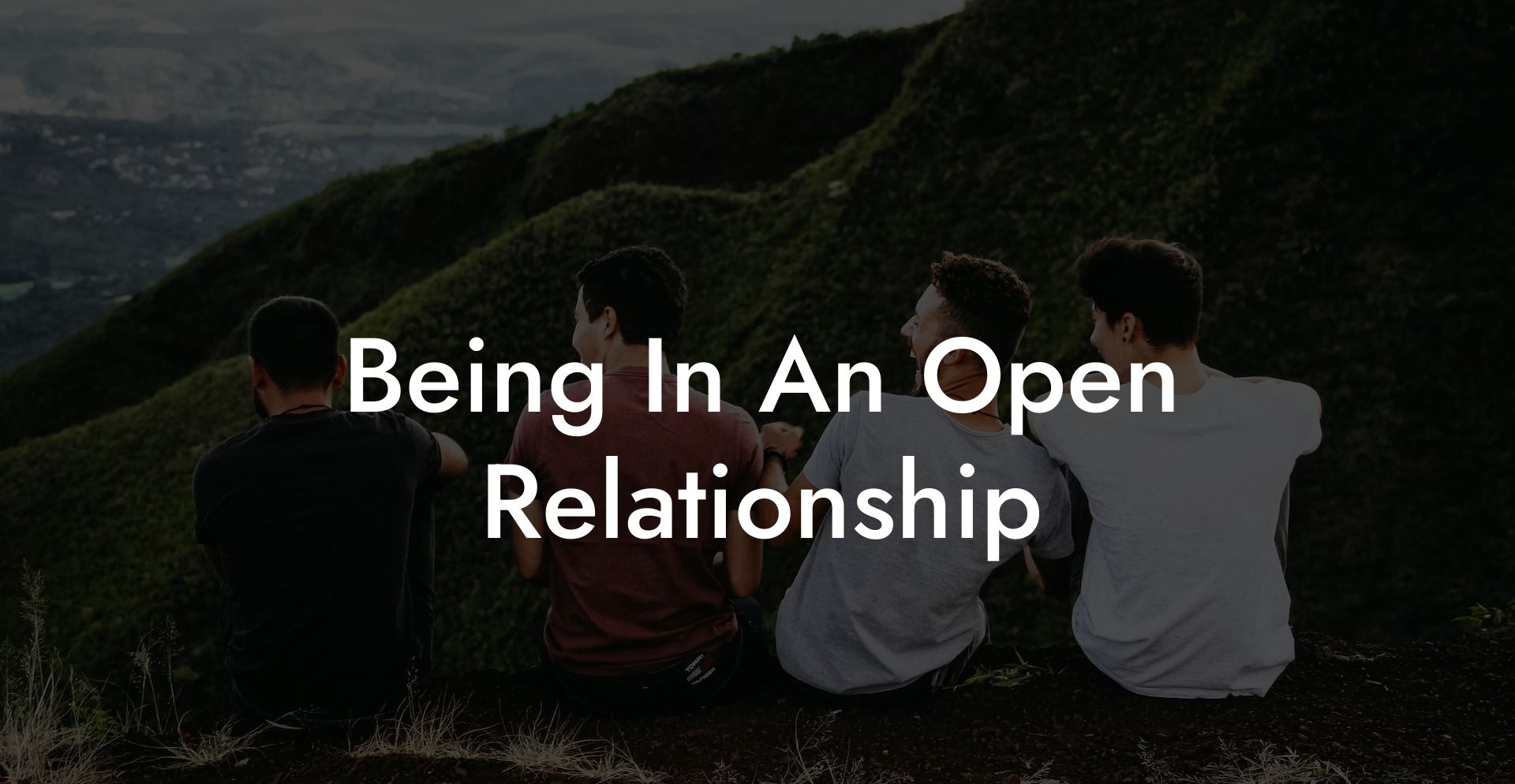Welcome to the world of open relationships! It can be an exhilarating and fulfilling journey for those who have decided to take the plunge. However, with every exciting new venture come challenges and potential pitfalls. In this comprehensive guide, we will explore being in an open relationship, the benefits, challenges, and provide helpful tips, ensuring you make the most out of your non-monogamous experience.
Being In An Open Relationship Table of Contents
The Basics of Open Relationships
The Basics of Open Relationships
An open relationship, also known as non-monogamous or polyamorous, is one in which the individuals involved agree to have multiple romantic or sexual relationships with others. This means that both partners consent to non-monogamy, communicate openly about their desires and boundaries, and establish clear rules for their dynamic.
There are various types of open relationships, including:
- Polyamory: Involves the possibility of multiple romantic relationships, usually with emotional connections
- Swinging: Couples engage in sexual activities with other partners, often at social events or clubs
- Monogamish: A primarily monogamous couple that occasionally engages in sexual activities with others, usually without the formation of romantic bonds
Benefits of Open Relationships
Many people find open relationships to be fulfilling due to the following benefits:
- Increased communication: Because open relationships demand continuous conversations about boundaries, desires, and emotional well-being, couples experience increased levels of communication and honesty.
- Greater self-discovery: Exploring multiple relationships challenges personal beliefs, emotional resilience, and puts a spotlight on personal growth.
- Diverse needs fulfillment: Open relationships allow individuals to have their varying needs met by different partners, reducing stress and pressure on a single relationship to satisfy all aspects of one's life.
- Reduced monotony: Introducing new partners and experiences disrupts the monotony typically associated with long-term, monogamous relationships.
Challenges of Open Relationships
While open relationships can be rewarding, they also come with unique challenges:
- Time management: Balancing multiple relationships can be time-consuming, and it's essential to manage time effectively to meet everyone's needs.
- Navigating jealousy: Despite practicing open communication, jealousy may arise when seeing a partner with someone else; overcoming jealousy and insecurity is an ongoing effort.
- Establishing boundaries: Ensuring all parties involved are comfortable with relationship boundaries and minimizing the risk of misunderstandings is crucial for the success of an open relationship.
- Societal judgment: Though attitudes are changing, some may negatively perceive open relationships, causing those involved to navigate disapproval and societal stigma.
Being In An Open Relationship Example:
Consider the case of Jenna and Tom, who have been in a monogamous relationship for five years. They've decided to explore an open relationship to bring new experiences and excitement into their lives. Together, they discuss their desires, boundaries, and establish clear rules to guide this new chapter.
Jenna and Tom start by discussing what type of open relationship they prefer, agree on a polyamorous dynamic, and continuously nurture their emotional bond. They actively manage their time together and with other partners, ensuring no relationship becomes neglected. When feelings of jealousy creep in, they address them openly and acknowledge that it's part of the learning process.
Embarking on an open relationship is an incredible experience that requires trust, communication, and self-awareness. If you and your partner(s) can navigate the challenges, an open relationship may bring immense personal growth and deeper connections to your life. Share this guide with others intrigued by open relationships, and make sure to explore other posts on The Monogamy Experiment for more insight into the world of non-monogamy. Together, we can learn, grow, and thrive in our relationships!













